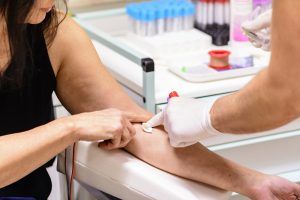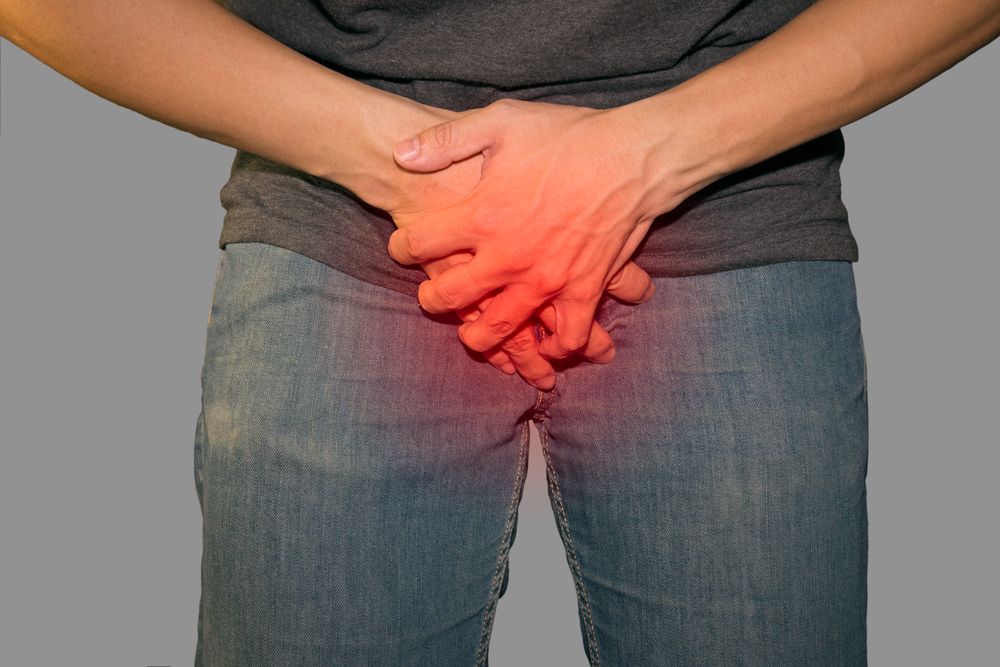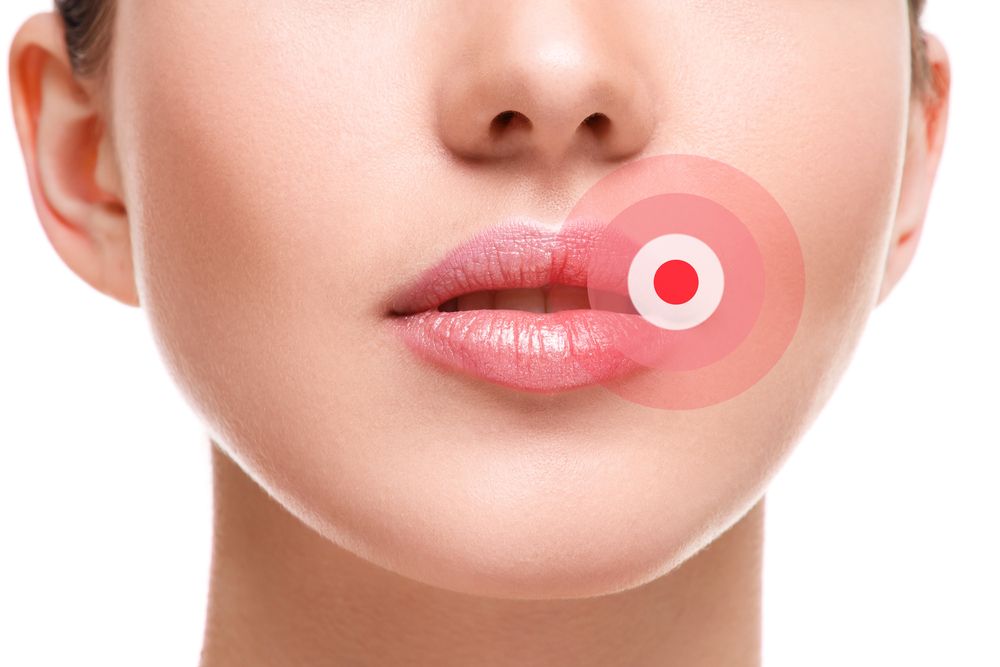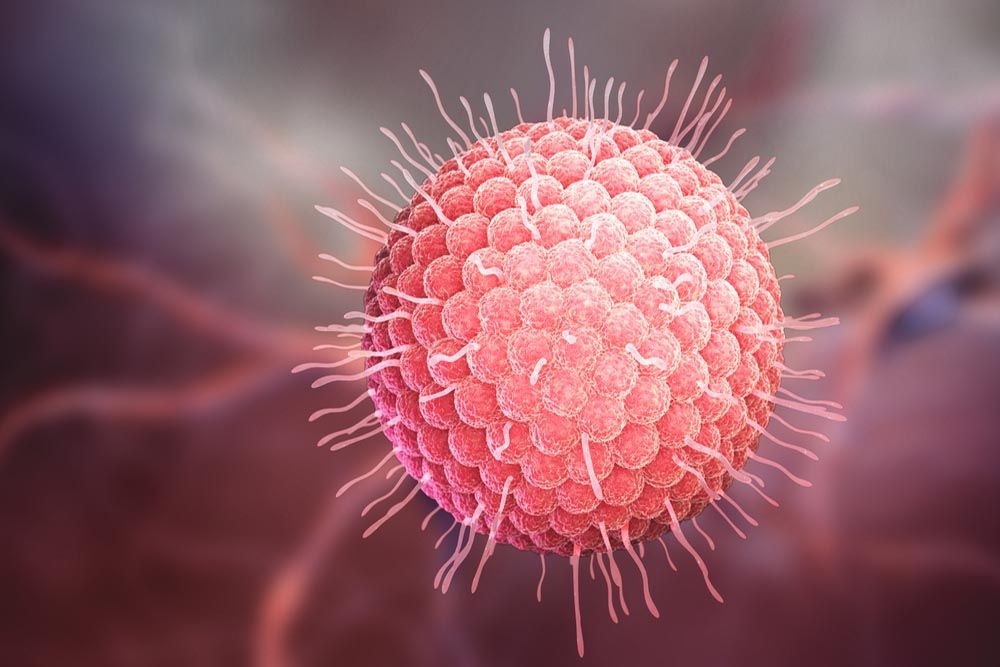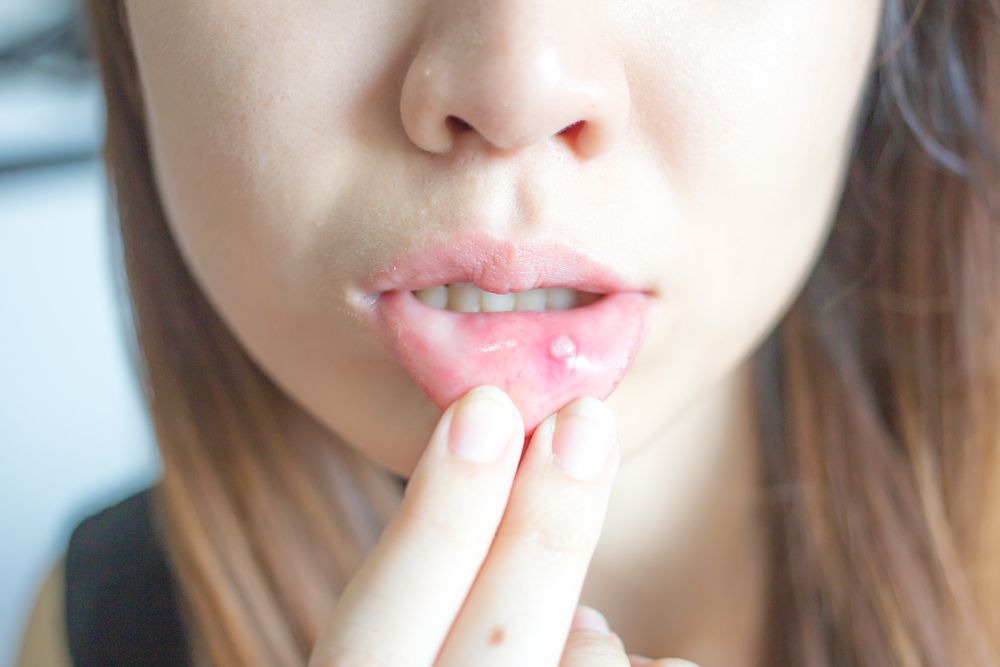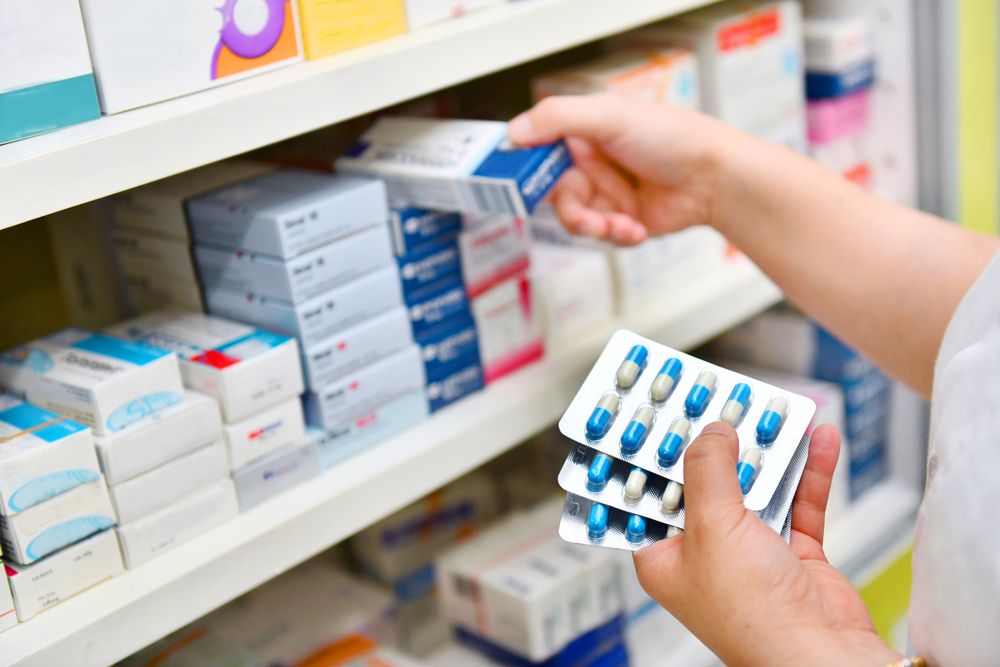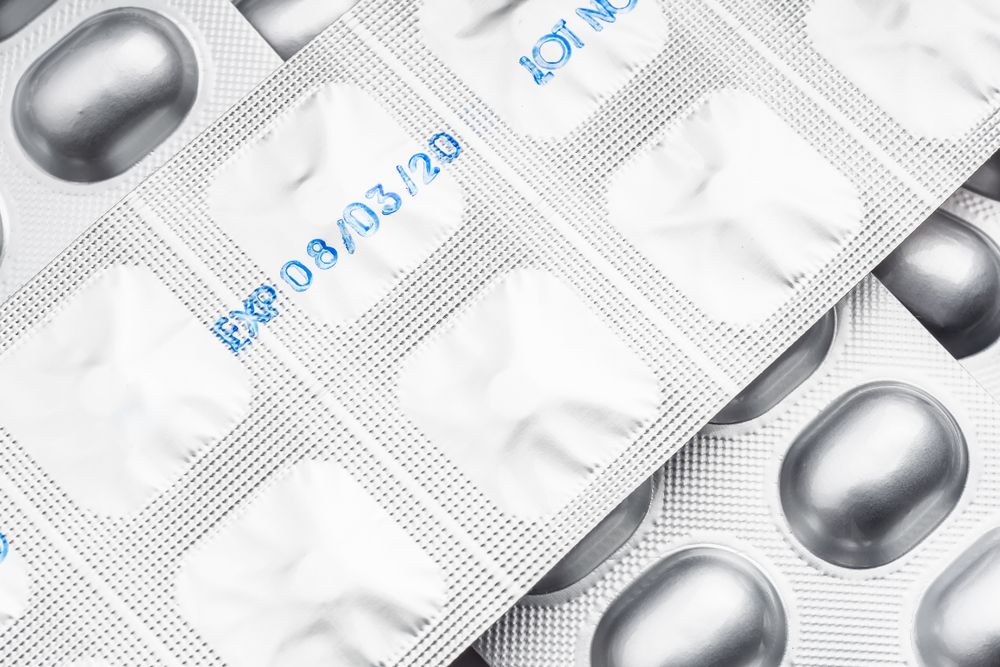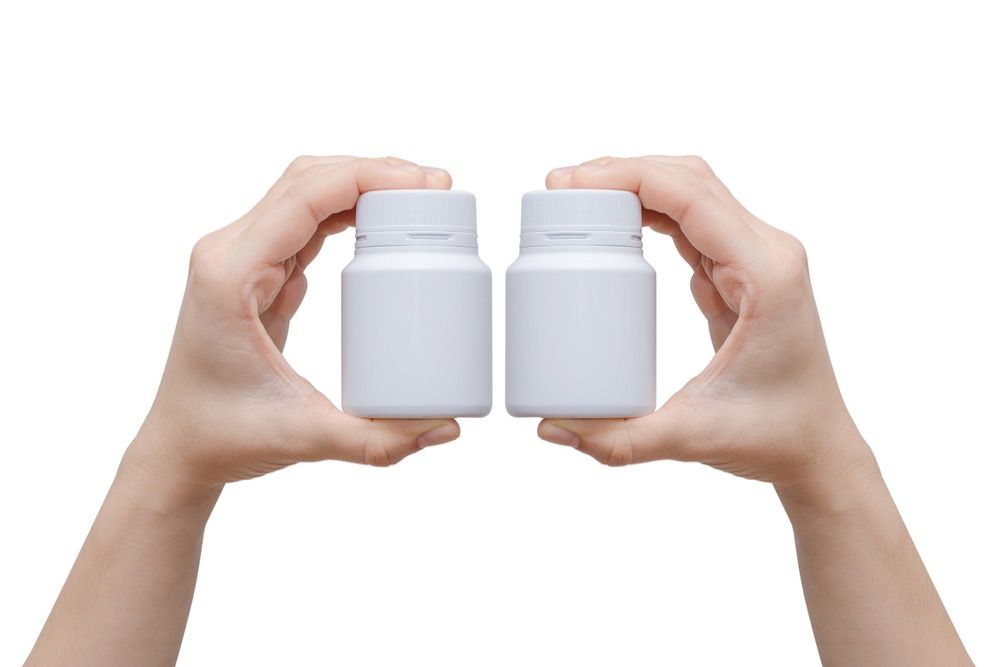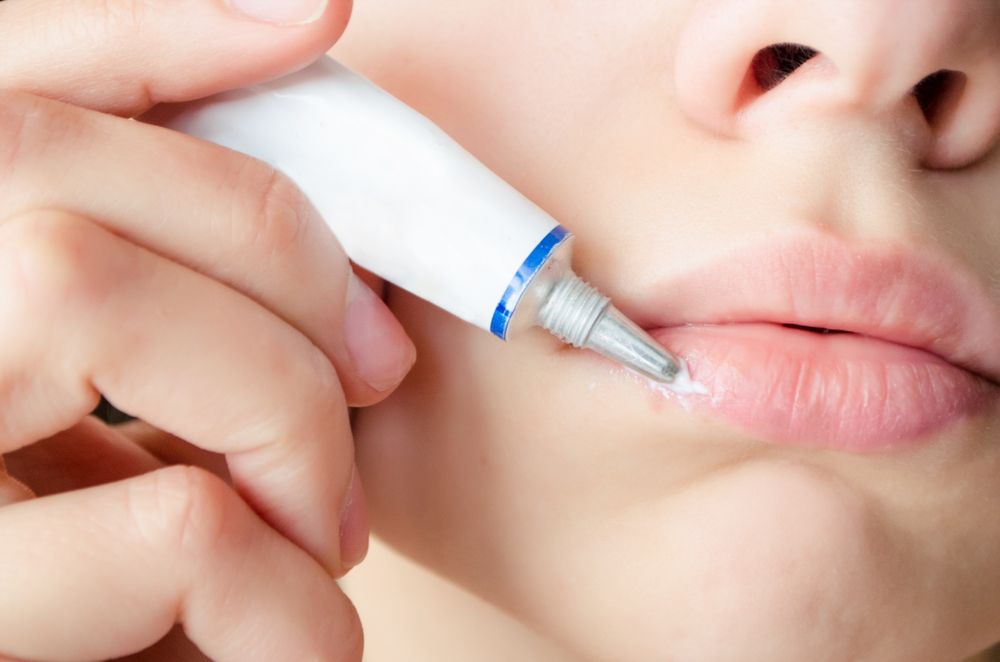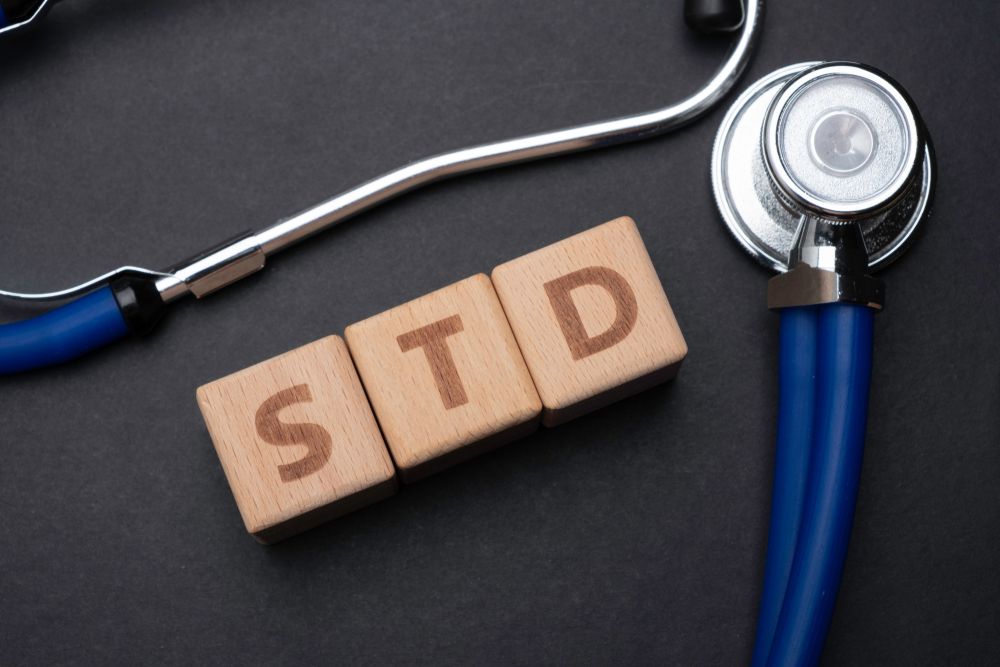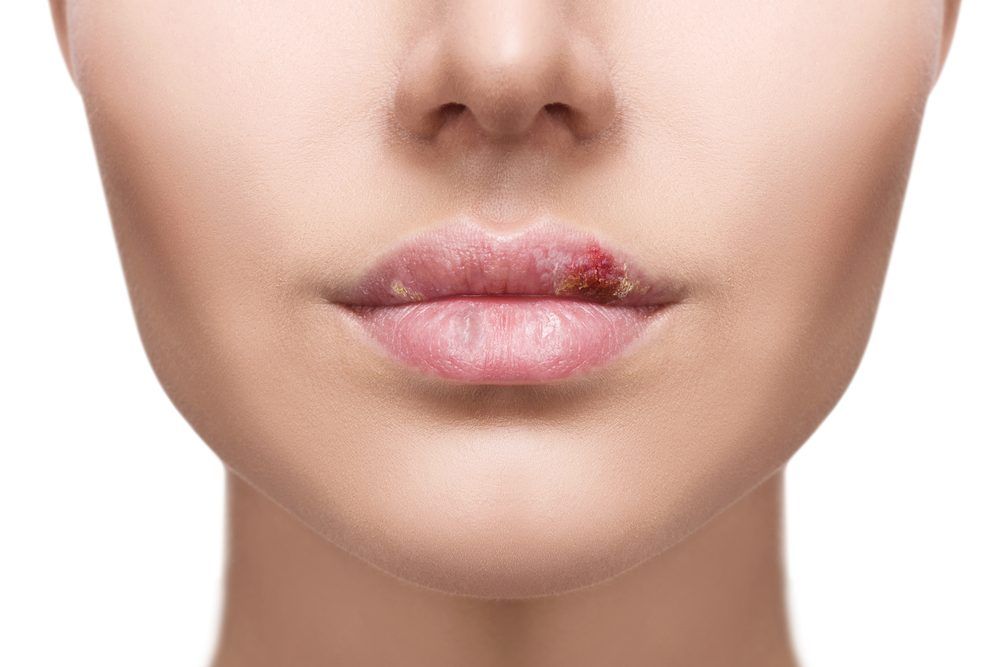Genital herpes can be caused by either HSV-1 or HSV-2. It is contracted through unprotected sexual contact with the genitals, anus, or mouth. (Learn More)
Many people have genital herpes, and symptoms can sometimes be so mild that someone will not know they have it. Getting an appropriate diagnosis through regular STI testing is important, so you can get treatment. (Learn More)
Antiviral medications are the main approach to managing genital herpes because they suppress the virus’s spread through the body, reduce healing time in the event of an outbreak, and lessen the number of outbreaks you may experience. (Learn More) There are also at-home treatments to ease symptoms when an outbreak begins.
It is important to understand strategies to prevent spreading this skin condition to sexual partners. (Learn More)
While there is no cure, genital herpes is very manageable and should not significantly impact your quality of life.
What Is Genital Herpes?

Genital herpes is a chronic, infectious skin condition that is initiated by a herpes virus, either herpes simplex 1 (HSV-1) or herpes simplex 2 (HSV-2). HSV-1 is also associated with cold sores or fever blisters on the lips or mouth, and it can be spread to the genitals through unprotected oral sex.
HSV-2 is a rare condition on the mouth. It is the more common cause of genital herpes, spread through unprotected genital or anal sexual contact.
The Centers for Disease Control and Prevention (CDC) estimates that 776,000 people in the United States develop new genital herpes infections every year. About 11.9 percent of people between the age of 14 and 49 have HSV-2.
Many more people have HSV-1 as oral herpes because it is frequently contracted in childhood. While the rates of oral herpes are declining, more instances of HSV-1 as the cause of genital herpes are appearing.
For most people, the first outbreak of herpes after contracting the disease is uncomfortable, itchy, or feels like the flu. After that, a significant number of people remain asymptomatic, while those with further outbreaks rarely experience intense or noticeable symptoms.
An estimated 87.4 percent of people with HSV-2 infections in the U.S. are never diagnosed with this condition because they do not have symptoms intense enough to warrant a visit to the doctor. This is why regular testing for sexually transmitted infections (STIs) is crucial for people who are sexually active with more than one partner.
People who contract genital herpes may experience shame or embarrassment, especially related to their sex lives. It is important to know that the risks of complications associated with herpes is low unless you have a suppressed immune system.
There are several effective antiviral treatments that reduce healing time when you experience outbreaks, so you experience fewer symptoms for less time. Although genital herpes is not curable, it is manageable with both medication and at-home remedies.
Diagnosing and Treating Genital Herpes
If you are concerned that you have genital herpes, or you want to be tested for this condition when you get a regular exam or STI screening, your doctor will perform one or more tests.
- Viral culture: If you have an active outbreak or sores that look like an active outbreak, your doctor may take a swab or scraping of the area to test for the herpes virus in a laboratory.
- Polymerase chain reaction (PCR) test: This test copies your DNA from a blood sample, tissue sample, spinal fluid, or sore. It can then determine whether the virus is in your body and which herpes virus it is.
- Blood test: A blood sample will be analyzed for the presence of HSV antibodies, which can detect the herpes virus even if you do not have a current outbreak.
If you are diagnosed with genital herpes, your doctor will work with you on an overall treatment plan. This may include at-home remedies to manage outbreak symptoms like pain, medications to reduce healing time or the number of outbreaks, and prevention strategies so you can stay healthy and reduce your risk of transmission.
You can also find support groups with others who have genital herpes, which can help to reduce your feelings of shame around the social stigma of this skin condition.
Medications to Treat Genital Herpes Outbreaks
Antiviral medications may be taken either daily or only during outbreaks. How you take them depends on what you want from your prescription and what your doctor thinks is the best course of action.
Most people with genital herpes take an antiviral medication episodically, or whenever they experience an outbreak, to reduce symptoms and healing time. However, for people who experience flareups six times per year or more, especially in the first year, taking an antiviral medication every day can help suppress these occurrences and support your immune system in managing the virus.
There are three antiviral medications commonly prescribed to treat genital herpes.
- Acyclovir (Zovirax): This medication was originally approved as a topical cream to treat herpes outbreaks in 1982. It was then developed into a convenient oral pill form in 1985.
Acyclovir works by preventing viruses from dividing and multiplying, which slows down outbreaks, reduces symptoms, and improves healing time. It is the first viral suppressant for genital herpes in the United States. It has been proven safe and effective for most people who take it, even among those who have taken the drug daily for 10 years.
There are several brand names for acyclovir, but Zovirax is the most famous, and the medication has been available in generic form for several years too. In addition to managing genital herpes outbreaks, acyclovir is also prescribed to manage shingles outbreaks, caused by herpes zoster virus.
You may experience some side effects associated with this medication.
- Nausea, stomach cramps, or vomiting
- Diarrhea
- Headaches
- Dizziness
- Fatigue or sleepiness
- Muscle and joint pain
- Changes in vision
- Hair loss
- Fluid retention
- Changes in behavior
- Confusion
If these symptoms become intense enough that they affect your life, speak with your doctor about adjusting the dose or finding a new antiviral medication.
- Famciclovir (Famvir): Like acyclovir, Famvir slows the multiplication and spread of herpes viruses, so outbreaks do not last as long, have less intense symptoms, and heal faster. The drug can be prescribed for genital herpes, oral herpes (cold sores), or shingles. Unlike acyclovir, however, the active ingredient in Famvir is penciclovir.
You may experience side effects from this medication.
- Nausea, gas, or stomach pain
- Diarrhea
- Headaches
- Feeling tired or fatigued easily
- Sleepiness or dizziness
- Mild itching
- Tingly feelings or numbness
- Valacyclovir (Valtrex): This is a newer medication, as it was approved by the U.S. Food and Drug Administration (FDA) in 1995. The active ingredient is acyclovir, and like the other listed antiviral medications, it slows the virus’s dividing and reproducing processes, which can reduce how many outbreaks you experience and how intense the symptoms are.
Taking Valtrex can also promote faster healing during an outbreak. The drug may be prescribed for genital herpes, oral herps, shingles, or chickenpox.
Like the other antiviral medications, you may experience some side effects.
- Nausea, stomach pain, or vomiting
- Diarrhea
- Dizziness
- Headaches
At-Home Treatments for Genital Herpes Symptoms and Prevention Information
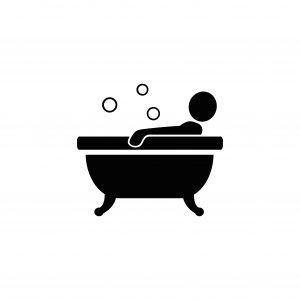
Not everyone who has genital herpes takes antiviral medications, and most people do not take them every day. Antiviral drugs are effective at reducing symptoms and speeding healing time during an outbreak. But after the initial outbreak, your immune system will become used to managing this disease, so outbreaks will become less and less frequent.
When you do experience an outbreak, you can try at-home treatments to ease symptoms along with your medication. Some of these include:
- Taking a warm bath.
- Keeping the genital area dry.
- Wearing looser clothing around the genitals.
- Using ice packs to reduce itching or swelling.
- Taking over-the-counter pain relievers like ibuprofen or acetaminophen.
If you are sexually active, here are some important steps to reduce your risk of contracting herpes or spreading it to other partners:
- Get regular STI tests, not just when you are worried about contracting a disease.
- Use barriers during sex, like condoms and dental dams.
- Talk about sexual safety with any partners you have.
- Avoid having sex during an outbreak, while you have sores, as this increases your risk of contracting other STIs like HIV.
Like many viral diseases, there is no cure for genital herpes, so you will manage this condition for the rest of your life.
This chronic disease is primarily a skin infection, and symptoms become less intense and more manageable over time. Antiviral medications will help this process a lot, so get an appropriate diagnosis and treatment plan.
References
Genital Herpes – CDC Fact Sheet (Detailed). (January 31, 2017). Centers for Disease Control and Prevention (CDC).
Genital Herpes: Diagnosis and Treatment. (October 3, 2017). Mayo Clinic.
Herpes Treatment. American Sexual Health Association (ASHA).
Genital Herpes: Overview. American Academy of Dermatology Association (AADA).
What Is Acyclovir (Zovirax)? (April 28, 2014). Everyday Health.
What Is Famciclovir? (November 9, 2018). Everyday Health.
How Do I Get Treatment for Herpes? Planned Parenthood.
What Is Valtrex (Valacyclovir)? (November 14, 2014). Everyday Health.


